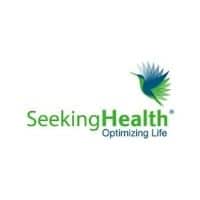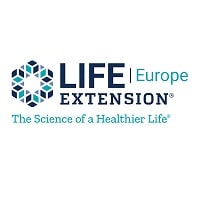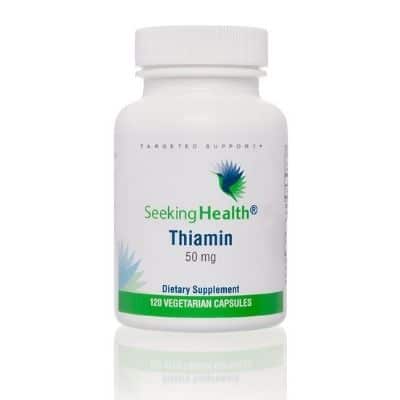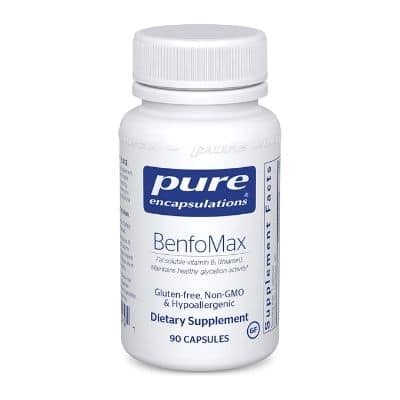After carefully reading everything about the best products on the market, it’s now time to learn a little more about vitamin B1 and the supplements based on it.
About B1
Finding the best B1 supplement starts with learning about this vitamin. This water-soluble vitamin (often referred to as thiamine, or thiamin) is a compound that enables the body to use carbohydrates more efficiently as fuel (energy). It’s important in metabolizing glucose and it also plays a crucial role in maintaining healthy heart, nerve, and muscle functions.
When it comes to getting enough thiamine, experts argue that the best source of vitamin B1 is food, such as grains, meat, and fish, yeast, nuts, whole grains, and pork.
Kale, asparagus, oranges, eggs, cauliflower, liver, and potatoes are also known to contain the vitamin, however, cooking, processing, and heating these foods can destroy thiamine.
Vitamin B1 Benefits
When talking about these compounds, we should also mention their potential health benefits. Thiamine helps prevent several complications in the body, including problems with the brain, nervous system, muscles, intestines, stomach, and heart. It can also help electrolytes enter and leave the muscles and nerve cells.
Taking an adequate thiamine supplement dose on a regular basis can also help prevent such diseases as beriberi.
Also, thiamine treatments are prescribed for those who suffer from peripheral neuritis, a condition characterized by inflammation of the nerves on the outer part of the brain.
Thanks to its characteristics, athletes may also take B1 products, to help enhance their athletic performance.
The main vitamin B1 function is converting carbs, fats, and protein into energy. As such, B vitamins (especially vitamin B1 supplements) are essential for keeping the skin, hair, liver, and eyes healthy, not to mention, they keep the nervous system intact, along with promoting healthy brain function.
Lastly, B vitamins are often referred to as “anti-stress” vitamins as well, because they can help boost the immune system in stressful periods (the best vitamin B12 supplements may also help improve your mood).
Vitamin B1 Deficiency
One of the main reasons people look for a reliable B1 vitamin supplement is to combat vitamin B1 deficiency.
Those who eat a diet consisting mainly of white flour, processed carbohydrates, and white sugar might actually develop thiamine deficiency over time.
The first vague symptoms of the condition are usually irritability and fatigue, however, as the condition progresses, it can affect the brain, heart, and muscles as well.
To correct the deficiency, supplements are usually prescribed, taken orally.
More often than not, experts will agree that the best form of thiamine is undoubtedly food, because it’s widely available in our everyday diet, especially if we look for whole-grain, nuts, potatoes, legumes, and non-processed food options.
Furthermore, several sources cite that thiamine isn’t toxic, meaning, “overdosing” shouldn’t be a concern.
Apart from eating a poor diet, excessive alcohol consumption may also lead to thiamine deficiency (among other alcohol-related problems).
Beriberi (Severe Thiamine Deficiency)
When vitamin B1 deficiency progresses, patients may develop beriberi, a condition characterized by several heart, brain, and nerve abnormalities. Beriberi also has several forms.
- Dry beriberi: When the best B1 vitamin foods and other sources are avoided for long enough, patients may develop dry beriberi, a condition mostly presenting itself through muscle and nerve abnormalities such as a prickling sensation in the toes, along with leg cramps and pain. Muscle atrophy and weakness may also occur.
- Wet beriberi: The hearts of patients with wet beriberi usually start beating faster and pumping more blood. In return, the blood vessels dilate and the skin becomes moist and warm. Eventually, heart failure will set in if the condition goes untreated, as the organ isn’t able to keep working at such an elevated rate.
- Brain abnormalities: The best thiamine supplement for alcoholics can also help combat this deficiency that can potentially harm the brain. Sometimes, these abnormalities present themselves without any symptoms at all.
At other times, symptoms are triggered after something worsens the condition, like an alcoholic binge or when the patient is given carbohydrates intravenously. In the latter case, problems occur because the excess carbs only increase the body’s thiamine needs.
These brain abnormalities are called the Wernicke-Korsakoff syndrome, and they have two distinctive parts. Wernicke encephalopathy can lead to confusion, apathy, eye problems, and eye paralysis. The other part, Korsakoff’s psychosis can cause confusion, memory loss, and confabulation.
With such severe consequences, no wonder most doctors will urge you to choose the best vitamin B1 supplement when you’re suffering from thiamine deficiency.
Vitamin B1 Dosage
According to the US guidelines, the recommended daily allowance taken orally should be 1.2 mg for men and 1.1 mg for women over the age of 18. Breastfeeding or pregnant women have a slightly higher RDA of the compound, at 1.4 mg daily.
When supplementing, dosages will mostly depend on your conditions. In the case of mild thiamine deficiency, 5 mg to 30 mg of the best thiamine supplements may help, however, in more severe cases, you might have to take as much as 300 mg daily.
Side Effects, Interactions, and Products to Look For
Generally, thiamine is considered nontoxic, however, experts from the US Food and Drug Administration (FDA) advise users to be cautious when buying supplements.
Not to say that these products are harmful, but as the FDA does not regulate supplements, the testing and standards aren’t as high as they are for pharmaceuticals. As such, some less reliable and reputable manufacturers can fabricate claims and manipulate nutrient contents.
So, to avoid buying faulty products, reading vitamin B1 reviews (such as this one) can be a huge help. Also, consulting with your doctor is essential. Lastly, you can learn more by reading different product labels, researching manufacturers, and looking for certificates and third-party lab test results to ensure that you’re getting the right product.
As far as interactions go, tannins found in coffee and tea may interact with thiamin and make it harder to absorb. Also, chemicals in raw fish and shellfish may destroy thiamine and can lead to deficiencies if you eat them in large quantities.




















